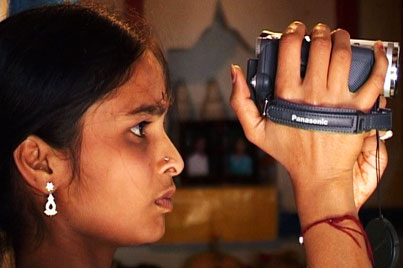My rage as a black person witnessing yet another moment in the endless cycle of racism in the US prevents me from engaging in "level headed" conversations with people who see this terribly unjust Ferguson ruling as just another news story to banter about at the water cooler. I need…
-
Activism - Afrofeminism - Blog - Kumbaya Politics - Race, Culture, Ethnicity - The Political, Personalized
-
I Have a Dream: Imagine Martin Luther King, Jr. As Weak
Rather than the prophetic force he's been eulogized to be, imagine Martin Luther King Jr. as just another man walking down the street, or sitting at a bus stop looking down at his knees, pensive... wondering whether or not he was doing the right thing. Imagine him as human, so…
-
How to Increase Media Diversity: 3 Lessons from the London Feminist Film Festival
It's only been a few months since the LFFF's initial email to me, but judging from the film festival's program, the organizers efforts have really paid off. It's not every day I get to see I'm impressed with an organization's outreach efforts (and results). So, I'd like to take this…
-
Finding Common Ground (Part 1): Why Aren’t More Activists Collaborating?
Based on how often marginalized people talk about the power of "community", especially within the realm of grassroots activism, one would imagine the non-profit industry would have evolved into a flourishing ecosystem of recyclable free-flowing skills, services, and progressive ideas by now. Yeah, that's not happening. Welcome to the first…
-
NEW PROJECT: Interview Series Featuring LGBT Human Rights Leaders around the World
The founder of QWOC+ Boston (Spectra, www.spectraspeaks.com) is interested in interviewing LGBT POC leaders in the US and Human Rights Activists around the world as part of a new project to share leadership stories and best practices. The project launches in February, and in solidarity with Black History Month, will…
Online rulet oyunları gerçek zamanlı oynanır ve online slot casino bu deneyimi canlı yayınlarla destekler.
İnternet üzerinden eğlence bahsegel giriş arayanlar için deneyimi vazgeçilmezdir.
Kullanıcıların hesaplarına hızlı ve sorunsuz bettilt ulaşabilmesi için adresi her zaman güncel tutuluyor.



